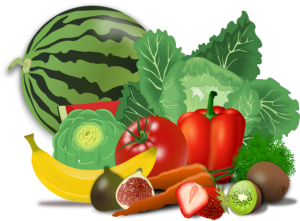
Support your intestines with a healthy lifestyle
With constipation you experience difficulty or inability to empty your intestines, which can lead to complaints such as abdominal pain or pain during bowel movements. If your intestines aren’t functioning properly, they may need some help. It is not always necessary to use medication; a change in lifestyle can also help achieve positive results. It is very important to eat a healthy diet and drink enough water. Don’t forget to get enough exercise every day. Don’t let constipation spoil your day and improve your digestion using our advice.
Possible causes of constipation
- Inadequate intake of fiber in the diet
- Lack of exercise
- Use of certain medications
- Delaying visits to the toilet when you feel the urge can lead to constipation.
- Sometimes constipation can be the result of an underlying disease
- Older age
- Dehydration
- Stress can disrupt the digestive system and lead to constipation or diarrhea.
Intake of sufficient fiber
Fibers retain moisture in the intestines, making the stool softer and the intestines function better. Fiber is mainly found in fruits, vegetables and whole wheat bread. Think of whole grain products such as whole wheat pasta and brown rice, oatmeal, and linseed. Fiber is also mainly found in vegetables, fruit, legumes such as kidney beans, chickpeas and lentils, and nuts.
Adequate fluid intake
Make sure you get enough fluid, aim for 1.5 to 2 liters per day. Drink water, tea and coffee without sugar. It is better to avoid fruit juice and soft drinks. Drinking water is always preferable.
Exercise at least 30 minutes a day
Exercise actively for at least half an hour every day, which is beneficial for intestinal movement. Walking is an excellent option because it gets your bowels moving.
Don’t wait to visit the toilet
Go to the toilet as soon as you feel the urge, even if you are busy. If you don’t do this, over time you may no longer feel the urge. This can lead to harder stools in the intestines.
Natural remedies for intestinal blockage
- Eat whole wheat bread
- Eat 2-3 kiwis every day at fixed times, for example as a dessert after a meal.
- Add 1 teaspoon of pure cocoa powder without sugar to yogurt for breakfast.
- Consider including plums, apricots, dates and beets in your diet.
- Drink warm water. Drinking 1 glass of water within half an hour after breakfast stimulates intestinal function and may cause you to feel the urge to go to the toilet.
- Coffee can also help.
- Try 1-2 tablespoons of flaxseed oil daily.
- Senna leaf tablets or tea can serve as a natural laxative. However, do not use Senna more than 2-3 times a week and not for longer than two weeks, due to possible serious side effects with long-term use. However, for a short-term application, Senna can offer a good solution.
Over-the-counter medications for constipation
If constipation persists despite a healthy lifestyle and measures taken, there are some remedies that you can obtain from the pharmacy without a prescription. Consult the pharmacy employee for information about the use and effectiveness of the self-care product you choose.
- Lactulose: Lactulose syrup can be taken for mild constipation, even in children. Consult the pharmacy for the correct dosage for your child.
- Magnesium hydroxide: Magnesium hydroxide tablets, correspond to 500 mg magnesium oxide, adults can take 1-2 tablets up to 3 times a day if necessary.
- Bisacodyl: If the effectiveness of the above-mentioned remedies is insufficient, bisacodyl in the form of dragees or suppositories can be considered.
- Microlax: Microlax enema, with the active ingredients sodium lauryl sulfoacetate/sodium citrate/sorbitol, can provide good relief for complaints.
- Colex Enema: For severe constipation or when you want quick results, a Colex Enema with sodium phosphate can be effective.
Using an enema often leads to a positive result within 15 to 30 minutes. In some cases of severe constipation, both lactulose syrup and an enema are used at the beginning of treatment.
If you feel sick, have pain or are concerned, always talk to your doctor.